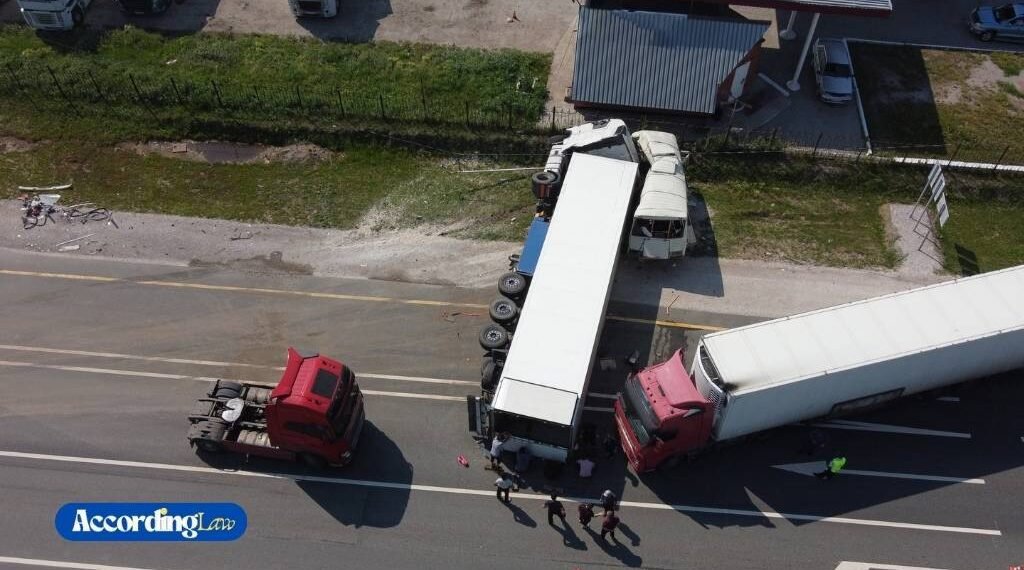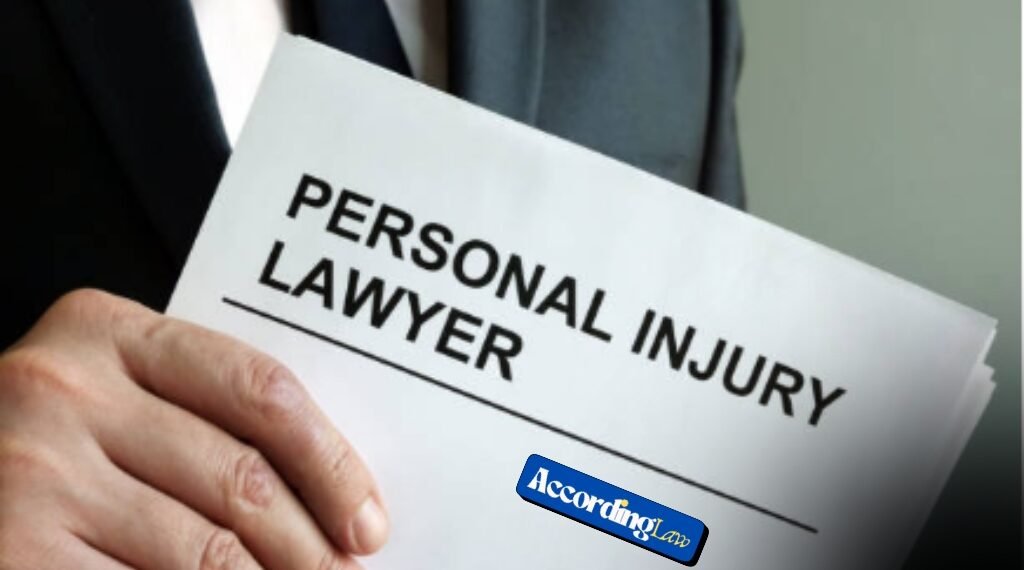Truck accidents are among the most complex types of roadway collisions due to the number of parties that can potentially share responsibility. Unlike a typical car accident, which typically involves only two drivers, truck accidents can involve multiple parties, including trucking companies, contractors, maintenance crews, manufacturers, and even third-party logistics providers. Each party may have played a role, either directly or indirectly, in the events leading up to the crash.
Due to this complexity, identifying liability involves more than just examining the driver’s actions. Understanding why multiple defendants are often involved highlights the various parties that contribute to safety and accountability in the trucking industry.
Table of Contents
Role of Trucking Companies
One of the first potential defendants in a truck accident case is the trucking company that employs the driver. Companies are often responsible for hiring, training, and supervising drivers, as well as enforcing safety policies and regulations to ensure a safe work environment. If a company failed to vet a driver’s background properly, required them to work beyond federally mandated hours of service, or neglected to enforce safety standards, it could be held directly liable for contributing to the accident.
Additionally, trucking companies may face what is known as “vicarious liability,” where they are held legally responsible for the actions of their employees while they are on the job. This means that even if the driver’s immediate negligence caused the crash, the company can still be named as a defendant. The trucking company’s role goes beyond ownership, it involves responsibility for creating conditions that either prioritize or undermine safety on the road.
Driver’s Responsibility and Individual Liability
While trucking companies often face significant scrutiny, the driver involved in the accident is also a primary defendant. Drivers are expected to operate their vehicles safely, follow traffic laws, and comply with industry regulations designed to prevent accidents. When drivers engage in reckless behavior such as speeding, distracted driving, or driving under the influence, they may be personally liable for the harm caused.
However, in many cases, their actions are intertwined with company pressures or poor oversight, which expands the scope of liability. Victims often pursue claims against both the driver and the employer simultaneously to ensure full accountability and hold both parties accountable.
For instance, if a driver violates hours-of-service rules due to pressure from their employer to meet delivery deadlines, both the driver and their employer may be held accountable. Many victims turn to a Michigan truck accident lawyer for guidance in these situations, as these cases require carefully balancing claims against multiple defendants to ensure that justice is achieved.
Contractors and Independent Operators
Another layer of complexity arises when contractors or independent operators are involved. Not all truck drivers are direct employees of a company; many work as independent contractors who own or lease their trucks while taking assignments from larger carriers. In these cases, liability may depend on the contractual agreements between the driver and the company. Courts and insurers often examine whether the driver was operating as an independent business entity or under the direction of a larger corporation.
This distinction matters because it determines whether liability extends to the carrier or remains solely with the driver. Independent contractor arrangements can sometimes shield trucking companies from liability, but if the company exercises significant control over the contractor’s work, it may still share responsibility. This interplay gives rise to legal debates over who bears the financial and legal burden after an accident, often resulting in multiple defendants being named in the case.
Maintenance and Repair Providers
Truck safety is heavily dependent on proper maintenance and timely repairs, which introduces another set of potential defendants: maintenance companies and repair providers. Trucks are complex machines requiring regular inspections, brake checks, and tire replacements. When a maintenance provider fails to perform these duties correctly, resulting in mechanical failure, they may be held liable for the consequences.
For example, if faulty brake work leads to a catastrophic accident, the maintenance company that performed the work could be held accountable alongside the driver and employer. These cases highlight how the chain of responsibility extends beyond those directly involved in driving. Victims often find that multiple parties contributed indirectly to unsafe conditions, making it necessary to hold all responsible entities accountable. Unlike standard car accident claims, truck accident cases frequently involve tracing failures through several layers of service providers who had roles in ensuring roadworthiness.
Manufacturers and Defective Parts
In some truck accident cases, the cause can be traced back to defective parts or faulty manufacturing. Tires that blow out prematurely, brakes that fail under regular use, or steering systems that malfunction can all contribute to devastating crashes. When this occurs, liability may extend to manufacturers, distributors, or suppliers of the defective parts. Product liability claims differ from negligence claims in that they focus on the safety and design of products, rather than the behavior of individuals. This introduces another dimension to truck accident lawsuits, where defendants may include large corporations with extensive legal resources.
Unlike typical auto accidents, where liability rarely reaches manufacturers, truck accident cases often highlight how equipment failures intersect with operational decisions, creating a broader net of accountability. This combination of negligence and product liability illustrates why multiple defendants are usually present in these cases, each tied to different aspects of the crash.
Cargo Loaders and Third-Party Logistics Providers
The way cargo is loaded and secured can also play a significant role in truck accidents, particularly when loads shift or become unbalanced during transit. Improperly loaded cargo can cause a truck to tip over, lose control, or spill hazardous materials onto the roadway. In such cases, the responsibility may fall on third-party logistics providers, shipping companies, or warehouse staff who handled the cargo. These parties are often separate from the trucking company or driver, but still hold responsibility for ensuring safety.
In these cases, liability focuses on whether proper loading protocols were followed and whether the weight distribution complied with federal regulations. By involving third parties who may never have been at the accident scene, these claims show how truck accident lawsuits extend far beyond traditional accident cases. The involvement of multiple handlers in the supply chain naturally leads to various defendants when something goes wrong.
Government Entities and Road Conditions
In some instances, government entities may also be named as defendants, particularly when poor road design, lack of signage, or failure to maintain highways contributed to the accident. While suing a government body is often more complex due to immunity laws and strict procedural rules, it may still be possible in cases where negligence is evident.
For example, a poorly maintained road that caused a truck to lose control may bring local or state agencies into the case. This dimension highlights yet another way multiple defendants can be involved in a single truck accident lawsuit. Unlike regular car accidents, where liability is often limited to the drivers involved, truck accidents frequently expose broader systemic issues tied to infrastructure and regulation. These cases underscore the interconnected nature of responsibility, illustrating how multiple entities can contribute to or compromise roadway safety.
Truck accident cases stand apart from typical personal injury claims because of the number of potential defendants that may be implicated. From trucking companies and drivers to contractors, maintenance providers, manufacturers, and even government entities, responsibility for a single accident often spans multiple layers of accountability. Each party contributes differently to safety, whether through operational oversight, equipment maintenance, or infrastructure management.
This interconnected web makes truck accident cases more complex, but it also ensures that all responsible parties can be held accountable for their roles. For victims, understanding these dynamics is essential to securing fair compensation. By recognizing why multiple defendants are often involved, individuals can better appreciate the complexity of these lawsuits and the importance of pursuing justice through careful and thorough legal action.


